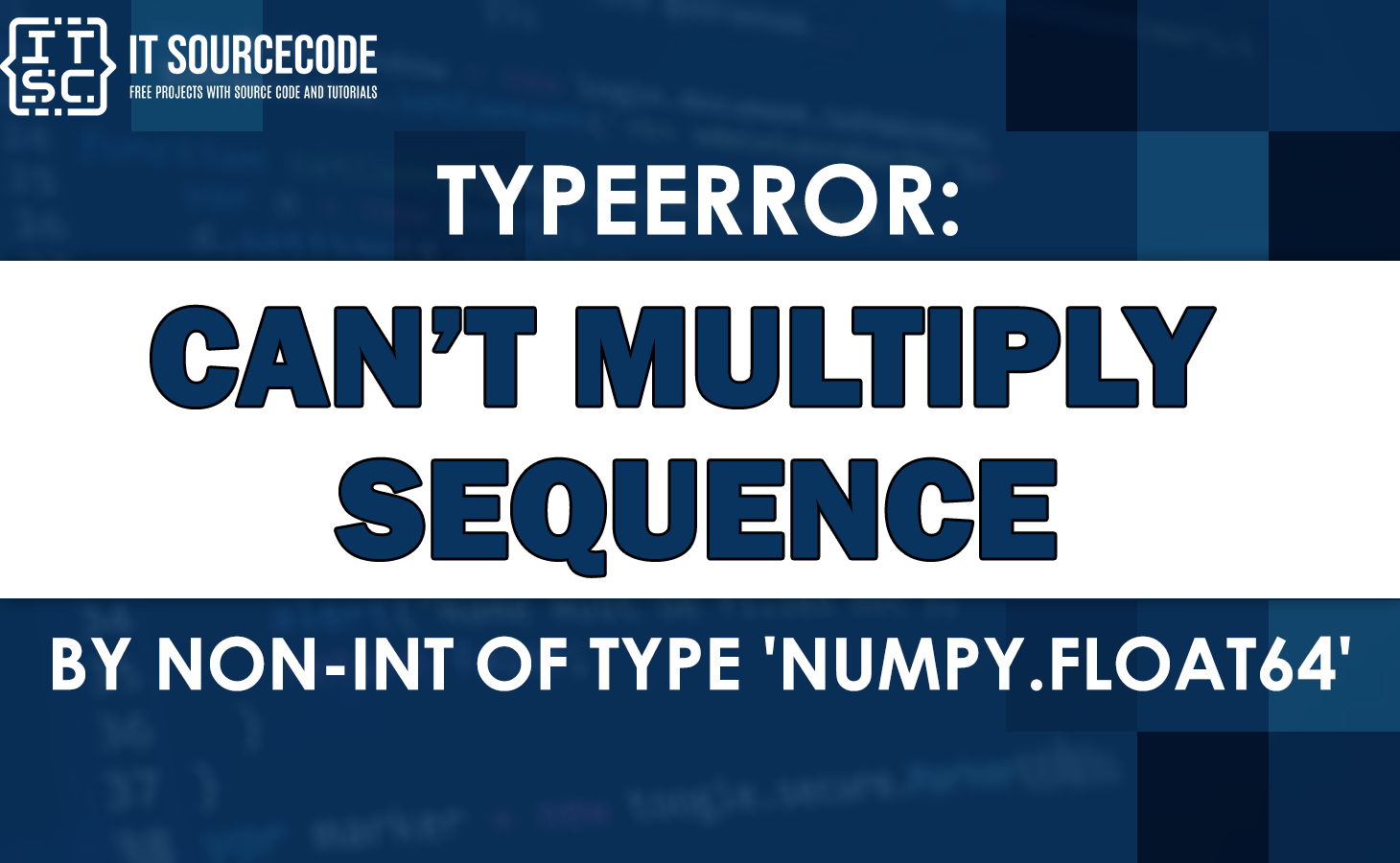In this article, we are going to explore the “typeerror: can’t multiply sequence by non-int of type ‘numpy.float64’.”
If this “cant multiply sequence by non-int of type numpy.float64” error gives you a headache?
Then keep reading, as we will help you on how to troubleshoot this error.
Let’s get started by understanding what this error means and why it occurs in your code.
What is NumPy Arrays?
The NumPy arrays are a powerful data structure in Python that allows users to perform mathematical operations on large sets of data efficiently.
Moreover, NumPy arrays are similar to lists in Python, but with added functionality and optimized for scientific computing.
What is “typeerror: can’t multiply sequence by non-int of type ‘numpy.float64′”
The “typeerror can’t multiply sequence by non-int of type numpy.float64” error message usually occurs when you try to perform a multiplication operation.
Specifically, a ‘numpy.float64’ type, a NumPy array, and a non-integer data type.
It indicates that the data types of the two arrays are not compatible, and NumPy cannot perform the multiplication operation.
This is because you can only multiply a sequence by an integer value, which repeats the sequence that many times.
However, if you try to multiply a sequence by a non-integer value, such as a float or numpy.float64, you will encounter this error message.
Why does this can’t multiply sequence by non-int of type ‘numpy.float64’ occur?
This error message usually occurs in the context of using NumPy arrays and can be caused by several reason, such as:
→ Incorrect data type conversion
→ incorrect indexing
→ Invalid data shape.
Take note that it is important to address this error in order to ensure that the program functions correctly and produces the desired output.
How to solve the “typeerror: can’t multiply sequence by non-int of type ‘numpy.float64”?
Here are the different solutions that you may use to resolve the “can’t multiply sequence by non-int of type ‘numpy.float64” error message.
Solution 1: Convert the sequence to a NumPy array
You just have to convert the sequence to a numpy array before performing the multiplication operation.
import numpy as np
seq = [1.0, 2.0, 3.0]
arr = np.array(seq)
result = arr * 2.0
print(result)
In this solution, we first convert the sequence ‘seq’ to a NumPy array using np.array().
Then, perform the multiplication between the array and a float value of 2.0.
This results in a new array ‘result’ with the expected output.
Output:
[2. 4. 6.]Solution 2: Use NumPy’s multiply() function
You can use the numpy.multiply() function instead of the * operator to perform the multiplication operation.
import numpy as np
seq = [1.0, 2.0, 3.0, 4.0, 5.0 ]
result = np.multiply(seq, 2.0)
print(result)
In this solution, we use the multiply() function to perform multiplication between the sequence ‘seq’ and a float value of 2.0.
Output:
[ 2. 4. 6. 8. 10.]Solution 3: Use a for loop
You can use a for loop to perform the multiplication operation.
sample_list = [1.0, 2.0, 3.0, 4.0, 5.0]
result = []
for x in sample_list:
result.append(x * 3.0)
print(result)Here, we used a for loop to iterate over each element of the sequence and append the result of the multiplication to a new list.
Output:
[3.0, 6.0, 9.0, 12.0, 15.0]Solution 4: Use the map() function
You can use the map() function to perform the multiplication operation.
sample_list = [1, 2, 3, 4, 5]
result = list(map(lambda x: x * 3.5, sample_list))
print(result)Here, we used the map() function to apply a lambda function that multiplies each element of the sequence by 3.5.
Output:
[3.5, 7.0, 10.5, 14.0, 17.5]Conclusion
So, that’s the end of our discussion for today.
By executing all the effective solutions for the “typeerror: cant multiply sequence by non-int of type numpy.float64” that this article has already provided above.
We can guarantee that it will resolve the “can’t multiply sequence by non-int of type Numpy float64” error message.
We are hoping that this article provides you with sufficient solutions.
You could also check out other “typeerror” articles that may help you in the future if you encounter them.
- Typeerror: file must have ‘read’ and ‘readline’ attributes
- Typeerror: int object does not support item assignment
- Uncaught typeerror: illegal invocation
Thank you very much for reading to the end of this article.

